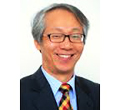Recently a technician with only a high school diploma was promoted to CEO of a leading Korean conglomerate. Even considering he has devoted his 30-year career entirely to the development of washing machines at that company, it was an unprecedented case as a college diploma has been regarded as of utmost importance in Korean society.
Having overcome the unfavorable conditions, however, he is surely qualified to receive praise, and so is the company. As to the company, it willingly granted high points to his actual capability to handle mechanical devices rather than his education. It may be a progressive sign that school prestige is breaking down.
This incident has more significance in that controversies over half-price tuition at universities are being brought up again in the ongoing presidential campaigns. Half-price tuition commitment along with childcare subsidies and other free welfare policies have become the most dominant issue in this election.
And a lot of Korean collegians would benefit from lower fees as the major candidates for the presidency are pledging to implement it if they win the race. Despite differences in concrete methods, the basic principles are almost the same for the ruling and opposition party contenders.
It is of course a desirable trend given that overall college fees in Korea are much higher compared with those in many OECD countries. Many college students have to spend their time working rather than in the library. They sometimes fail to enroll on semesters and are even forced to give up their courses altogether.
Although more than 80 percent of high school graduates go to college annually, university entrance itself does not guarantee graduation. The high entrance rate shows Korean society is based on academic diplomas. Graduating college is recognized as the first step to getting a better job, social position as well as a precondition to a better spouse.
But it also means one’s academic levels are determined by the names of the schools they attended. This society usually demands a diploma rather than scholarly capability and so many students aim for that.
It is known as many as nearly 670,000 students took this year’s College Scholastic Aptitude Test (CSAT) with the hope of entering prestigious universities. Right after the exam, students and parents rack their brains on how to enter better schools with their CSAT scores. But the freshman quota is about 400,000, which means the other 270,000 will likely fail. More memorable is that not all college graduates land jobs after four year’s paying expensive tuition.
However resolute the candidates’ promises, no one can deny it’s difficult to find financial resources to carry out the half-price tuition policy. It will be easier to start with trimming fees, not halving them. For even the most powerful presidents cannot print banknotes at will.
Adverse effects have already begun to appear, as the incumbent administration, citing fiscal constraints, is reluctant to accept the half-price tuition demands. Local municipalities are also raising doubts over the childcare subsidy policy. They assert the current budget cannot finance welfare programs demanded by the political parties.
It might be possible if only the budgets for other state affairs be transferred to support college students, which would surely cause more problems than we can imagine. It’s another problem that the quality of university education would deteriorate.
In this vein, the afore-mentioned story of the washing-machine technician must be taken seriously. It would be much better if more companies start to increase the recruitment of high school graduates.
Needless to say, a far better way of solving the tuition problem is to break down diploma barriers rather than helping collegians with discounted tuition fees. <The Korea Times/Hu Young-sup>



